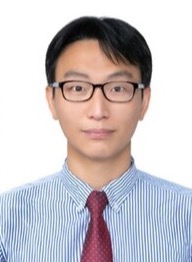In recent years, treating middle-aged and older adults with chronic diseases has become increasingly difficult. “A YouTuber says taking high blood pressure medication will melt your brain and ruin your body. This nutrient is good for high blood pressure. Is that good for my back? Brown rice or beans have toxins in them -- won’t they kill me?” I hear these kinds of questions from my patients dozens of times a day. People tend to distrust medications but place great faith in supplements. During my busy clinic hours, I’ve noticed these conversations are cluttering up my practice. In a half-day appointment, I find myself repeating the same things at least ten times: “You shouldn’t stop taking your medication, brain supplements don’t work, and you don’t need a lot of vitamins.” I’m losing it. Many patients already have stents in their blood vessels, and if they stop taking their medications, it could be dangerous.

Maybe it’s a vague anxiety about the unknown, or a hope that there’s a way to improve their health without medication. However, these perceptions often stem from a lack of information discernment -- or health literacy. Health literacy refers to the ability to understand and effectively use health information, such as following a doctor’s instructions or identifying reliable sources about a disease.
According to the U.S. Department of Health and Human Services, people with low health literacy are more likely to come across unproven or misleading treatments and videos when searching for information. In contrast, those with higher health literacy tend to find content from trusted sources, such as authoritative guidelines and high-quality articles.
Unfortunately, we live in a media environment flooded with information but with limited access to reliable sources. This is because, in the digital age, algorithms amplify misinformation, spreading it widely. On YouTube and social media, videos with sensational titles and inflammatory content attract the most clicks. Since user engagement benefits the platforms, algorithms tend to favor extreme or exaggerated claims over evidence-based, straightforward explanations. As a result, the race for clicks distorts the truth, and fake news with more views often has more influence than peer-reviewed research.
Information backed by numbers is often seen as boring. Yet before a drug can be developed and prescribed for a chronic condition, it must undergo a rigorous and complex validation process. This includes mechanistic studies, animal testing to confirm safety and effectiveness, phase 1 trials in healthy volunteers, and phase 2 and 3 trials in patients. Only if the evidence shows that the drug can meaningfully prevent serious illness, frailty, or death later in life will the Korean government approve it and provide health insurance coverage. Moreover, doctors are only permitted to prescribe drugs that meet these strict standards. A statement like “This drug can reduce your risk of heart attack by 30 percent over five years” may sound vague or unremarkable to some. But a sensational video titled, “This drug ruined my liver,” is emotionally powerful and far more likely to stick.
Dietary supplements and nutraceuticals, by contrast, can be sold without undergoing the same rigorous verification. They are classified as food products and are not required to demonstrate therapeutic efficacy. Instead, consumers are swayed by flashy advertisements and celebrity endorsements. A single testimony like “I cured my diabetes with this” can create unrealistic expectations and quickly mobilize an army of supportive commenters. Marketing is a skillful manipulator of human psychology, appealing to the emotions of those eager for hope. In the end, people are often more willing to spend money based on a celebrity or acquaintance saying “I tried it” than on the results of a large-scale clinical trial involving tens of thousands of participants.
The nature of today’s media environment also gives rise to health fads that lack scientific backing. A prime example is the so-called Carnivore diet, which promotes an all-meat eating pattern. While some celebrities claim increased energy and weight loss on this diet, experts caution against its long-term health risks.
Walter Willett, a professor at the Harvard T.H. Chan School of Public Health, called the Carnivore diet the worst idea, saying that while it may support short-term weight loss, eliminating fruits and vegetables can lead to low intake of fiber and essential micronutrients, increasing the risk of chronic conditions such as heart disease.
Still, sensationalist videos like “I cured myself of all my ills by eating only meat” top the list. There’s no shortage of other fad diets, such as those that eliminate certain food groups, claiming that antinutrients like phytic acid in grains and vegetables are harmful, or fasting regimens promising miraculous results just by timing meals. It’s all exaggerated, distorted, and presented as a cure-all.
It’s not just that this irritating and harmful misinformation consumes doctors’ time across the country. Following wrong health advice can cost you money, waste time, and even delay the care you need. That’s why it’s important to make a habit of seeking well-sourced information -- not sensationalized content -- that relies on data rather than stories, and comes from authoritative sources. You should also learn to recognize videos and texts that present a clear, honest narrative rather than ones manipulated to sound overly simple or appealing.
However, there is cause for concern. According to a recent study by the OECD, the decline in literacy among older adults in Korea is more pronounced than in other major economies, with a significant generational gap. Beyond health literacy, many older adults may struggle to understand the information they encounter daily, leaving them vulnerable not only in protecting their health but also their financial assets.
How did we get here? I wonder if it’s a combination of factors: the brain structure of people living such hectic lives that they lack time to process complex information; a societal mindset that considers it honorable to help elderly citizens live comfortably without requiring much mental or physical effort; and the psychology of individuals exhausted from years of competing in college entrance exams who no longer want to study as adults.
That’s why literacy -- and especially health literacy -- is essential. Developing health literacy means cultivating the habit of thinking twice before blindly following trending information. Middle-aged and older adults tend to be more interested in health information and, as a result, are often more vulnerable to commercial temptations.
However, following the wrong advice can cause irreparable damage. One of the important skills of aging is becoming a smart patient who learns and makes informed decisions. Cultivating literacy through continuous learning is equally important. In the face of information overload, the best defense for protecting your family and your health isn’t flashy advertisements or testimonials, but a calm eye for facts and a level head.

Jung Hee-won, a geriatric physician at Asan Medical Center, graduated from Seoul National University College of Medicine and trained at Seoul National University Hospital. During his med-school days, while practicing the horn, he realized the importance of muscle maintenance and became interested in sarcopenia. His main research interests include frailty, sarcopenia and establishing age-friendly health systems for acute hospitals. This column was originally published in Chosun Ilbo in Korean on June 4, 2025. -- Ed.
Related articles
- [Column] Korea should transition to 'smart labor' so both old and young can keep working
- [Column] Blood donation crisis: in 20 years, 2 people will have to share 1 supply
- [Column] Korea needs 'slow aging' in every sector
- [Column] Embrace voluntary discomfort for a fuller life in your later years
- [Column] Why leaders must stay sober
- [Column] Want a longer, healthier life? Think beyond the ‘me of today’ to the ‘me of tomorrow’
- [Column] Smartphone: the vacation enemy -- true rest starts when you put it down
- Brain MRI muscle thickness shows promise as sarcopenia indicator: study
- [Column] The power of multigrain rice to dramatically reduce blood sugar spikes
- [Column] Cutting in line on the road adds stress and speeds up aging
- [Column] Don’t grab their ankles: Why Korean organizations can’t move forward

